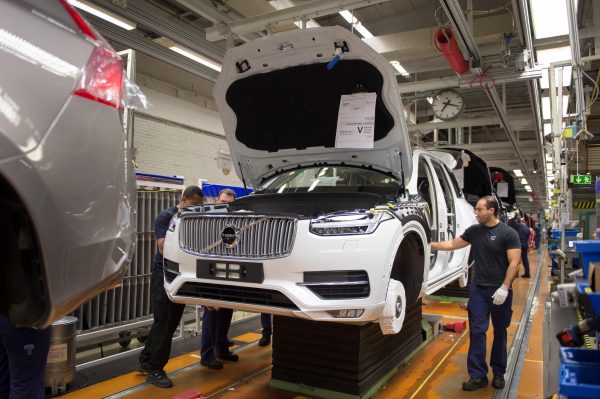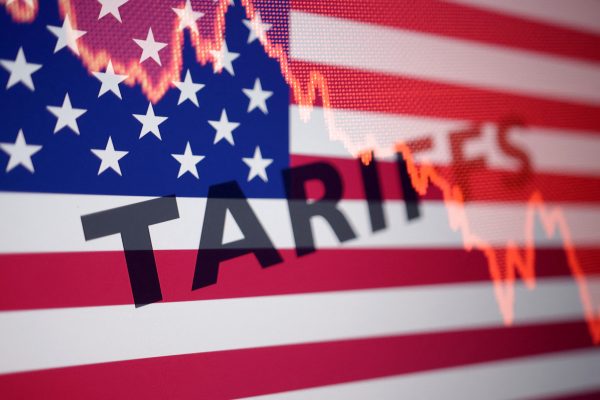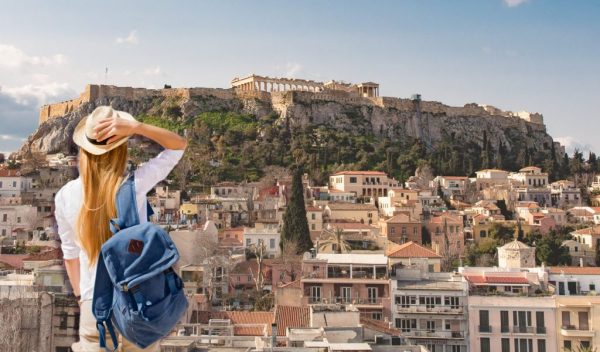
Greek Prime Minister Kyriakos Mitsotakis underlined that Greece was now a very different country to the one Angela Merkel had visited some 10 years ago, in statements after his meeting with outgoing German chancellor in Athens on Friday.
“It (Greece) is not a source of deficits. It is a modern state,” he told reporters during a joint press briefing and his talks with the visiting German leader, whose stop in Athens is part of a tour of European capitals before she steps down.
Mitsotakis first referred to the German Chancellor’s “16-year journey as the leader of Germany,” noting that she surpassed Konrad Adenauer in office and approached that of her mentor, Helmut Kohl.
Mitsotakis is the eighth Greek prime minister to have met with Merkel as chancellor, reminding that “… today’s Greece, which is very different from the one she has known over the last decade… Europe and Greece were tested by midguided decisions that came back to haunt them, disguised as populism and demagoguery.”
“And you yourself admitted that you asked too much of the Greek people,” Mitsotakis continued, adding that “fortunately, neither cheap austerity nor the cheap nationalist slogans endured. Community solidarity and true patriotism were ultimately victorious… Merkel was the voice of reason and stability. At times unfair, but decisive, as in 2015, when she rejected the expulsion of Greece from Europe,” Mitsotakis added.
“As Europe progresses with [unanimous decisions], these are built on agreements, and therefore on convergences,” he said, describing the chancellor’s change of heart on the issue of the Recovery and Resilience Fund as “courageous”.
“I had the opportunity to see all this at the summits, where the Chancellor not only suggested solutions but shaped them,” Mitsotakis said.
Turning to regional geopolitics, he emphasized that “I know your firm position in favor of dialogue and the easing of tensions,” a reference to Greece’s strained relations with a belligerent Turkey.
“I also always strive to keep channels of communication open but western composure often serves to encourage Turkish unpredictability. It is time for European principles to be transformed into European practice,” Mitsotakis said and added: “Greece only wants friends. It wants good relations, of course, with its neighbors, guided by international law and the law of the sea. But it doesn’t tolerate threats. My position is crystal clear.”
Turning back to the Eurozone, Mitsotakis also stressed that austerity cannot be the answer to everything.
“Both the Franco-German pact and the treaty of mutual defense assistance between Greece and France can form a model of European strategic autonomy. The future is exciting for Greece, Germany and Europe,” he said.
Concluding, the prime minister stressed: “I welcome you with pleasure and I say goodbye with respect. Athens will await you as a friend. In your new course, don’t forget Goethe’s words: ‘Of all peoples, the Greeks have dreamt the dream of life best’.”
On her part, the outgoing German chancellor said that “…anyone who knows about culture and civilization cannot leave out Athens and Greece…German-Greek relations were quite lively, I would say. The difficulties were a given when it came to the stability of the euro, and I was personally fully aware of the excessive burden that this meant, and the challenge that this meant for the people in Greece. In the end, we managed to find a common path, to keep in step for Greece to remain a member of the EU.”
“Once it was completed, when this phase was essentially over, we had to face another huge challenge, that of migration which started in 2015. We have shown that we can share responsibilities and I think that the EU-Turkey Agreement is an example that shows us that we can work together, and in this case work together with Turkey. I am aware of the large number of challenges that Greece faces when it comes to cooperation with Turkey. We discussed yesterday and today with intensity that United Nations resolutions and international law must apply, and we believe that it is important but difficult to find answers and solutions through dialogue,” she added.
“During the pandemic, on a bilateral and European level we showed that we can work together very closely,” Merkel said, concerning Greek-German relations, adding that this was one reason why she wholeheartedly supported the Recovery Fund.
“It was very important for recovery from the pandemic, especially for those countries that had been obliged to carry out a great many reforms and were then hit by the pandemic,” she added, noting that this would allow countries such as Greece, Portugal and Spain to make long-term investments and overcome the problems of the future, such as climate change, sustainability and preserving biodiversity.
She also noted that Greece, due to its geopolitical position and proximity to Turkey, also faced huge challenges at its external borders: “One can learn and be taught many things by Greece and from one another and many discussions led to very good solutions,” she said.
“I cannot but agree that most of the problems between Greece and Turkey are EU-Turkey problems, and within the framework of the EU there is unity. Despite the many things for which I can criticize Turkey, it is hosting 3.5 million refugees. In other words, Turkey accepts that it will be better if these people are in close proximity to their countries and this is what the EU-Turkey agreement is based upon. I made a commitment that we will be led to something that helps us but also helps Turkey, because Turkey must be supported and this applies in the case of Afghan refugees. We share these concerns because we don’t want traffickers to bring these people and instrumentalize them. I believe that we have a fully united stance in the EU and I am not afraid that we will be unable to reach a common stance,” the German chancellor said.
Asked about her stance toward Greece during the debt crisis, Merkel noted that the euro’s vulnerability to outside pressures had been a “shock” and that this had the greatest impact on countries with high debt “that had not done all that they should on the level of reforms”.
“I was always in favor of Greece remaining in the eurozone and I said that the efficiency of our economic system must be comparable otherwise we would not be able to keep the common currency alive. I know that I demanded a lot from the Greeks but, on the other hand, there were various governments in Greece that considered many reforms possible,” she said.
Greece achieved “excellent results” when its external borders came under pressure from migrants, German Chancellor Angela Merkel said on Friday, during joint statements with Greek Prime Minister Kyriakos Mitsotakis after their meeting in Athens.
She also noted that Turkish President Recep Tayyip Erdogan “was using people to achieve political goals.”
Merkel stressed that the EU “must not end up supporting smugglers and people traffickers” and get to the point where it was “people with the financial means and not refugees that are reaching us”.
“The problem we have today is that there are so many irregular migrants that we are not in a position, we cannot get to the people that need our help. The guarding of our external borders is the affair of some countries, which is why Frontex exists for support, and Greece achieved excellent results when pressure was put on its external borders. I said that Erdogan is exploiting people to achieve political goals. Lukashenko is doing the same. He is using people as a lever to exert pressure. As the EU, we cannot act as if the problem doesn’t exist. We must all assume our responsibilities. We have not reached that point yet,” Merkel said.
Latest News

New Exposé by Domumento Reveals Nefarious Triangular Link of ‘Black Money’ with New Democracy, Blue Skies, & Truth Team
The latest exposé by the Documentonews.gr news site lays bare what appears to be a surreptitious path of indirect financing of ND through the business sector—transactions that, as widely understood, rarely occur without expectations of reciprocal benefit

PM Meloni Meets Vice President Vance in Rome Signalling Optimism on Ukraine Talks
Meloni emphasized the strength and strategic value of the Italy-U.S. partnership.

Airbnb: Greece’s Short-Term Rentals Dip in March Amid Easter Shift
Data from analytics firm AirDNA shows that average occupancy for short-term rentals dropped to 45% in March, down from 49% the same month last year.

Easter Week in Greece: Holy Friday in Orthodoxy Today
At the Vespers service on Friday evening the image of Christ is removed from the Cross and wrapped in a white cloth

Meloni and Trump Meet in Washington, Vow to Strengthen Western Ties
“I am 100% sure there will be no problems reaching a deal on tariffs with the EU—none whatsoever,” Trump stressed.

ECB Cuts Interest Rates by 25 Basis Points in Expected Move
The ECB’s Governing Council opted to lower the deposit facility rate—the benchmark for signaling monetary policy direction—citing an updated assessment of inflation prospects, the dynamics of underlying inflation, and the strength of monetary policy transmission.

Current Account Deficit Fell by €573.2ml Feb. 2025: BoG
The improvement of Greece’s current account was mainly attributed to a more robust balance of goods and, to a lesser extent, an improved primary income account

Hellenic Food Authority Issues Food Safety Tips for Easter
Food safety tips on how to make sure your lamb has been properly inspected and your eggs stay fresh.

Greek Kiwifruit Exports Smash 200,000-Ton Mark, Setting New Record
According to data by the Association of Greek Fruit, Vegetable and Juice Exporters, Incofruit Hellas, between September 1, 2024, and April 17, 2025, kiwifruit exports increased by 14.2%.

Easter Tourism Boom: Greece Sees 18.3% Surge in Hotel Bookings
Among foreign markets, Israel has emerged as the biggest growth driver, with hotel bookings more than doubling—up 178.5% year-on-year.







![Πλημμύρες: Σημειώθηκαν σε επίπεδα ρεκόρ στην Ευρώπη το 2024 [γράφημα]](https://www.ot.gr/wp-content/uploads/2025/04/FLOOD_HUNGRY-90x90.jpg)





![Airbnb: Πτωτικά κινήθηκε η ζήτηση τον Μάρτιο – Τι δείχνουν τα στοιχεία [γράφημα]](https://www.ot.gr/wp-content/uploads/2024/07/airbnb-gba8e58468_1280-1-90x90.jpg)











![Επιχειρήσεις: Με τι επιτόκιο δανείζονται – Πώς θα ξεκλειδώσει περισσότερη ρευστότητα [γράφημα]](https://www.ot.gr/wp-content/uploads/2025/04/daneia-trapezes-768x432-1-600x338.jpg)














 Αριθμός Πιστοποίησης
Αριθμός Πιστοποίησης